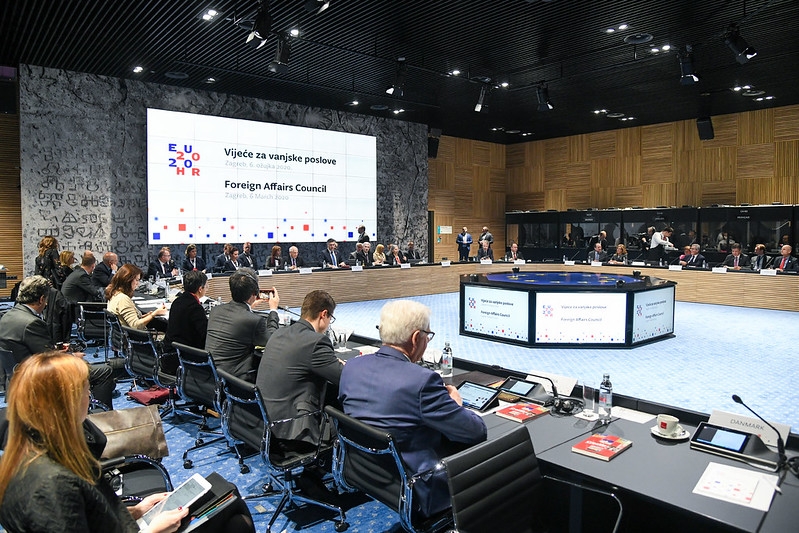On 5–6 March 2020 in Zagreb, Croatia, the Latvian Minister of Foreign Affairs, Edgars Rinkēvičs, took part in the Informal Meeting Foreign Affairs Ministers from the Member States of the European Union (EU), also known as Gymnich, and in an extraordinary Foreign Affairs Council convened at the request of Greece. The agenda of the informal meeting included the topic of EU relations and policy vis-à-vis Russia and views were exchanged on the development of relationship between the EU and Turkey. The extraordinary Foreign Affairs Council addressed the evolving security situation in Idlib, Syria, and at the EU external border with Turkey.
During the informal meeting, the Ministers discussed the EU’s relations with Russia, underlining that the EU policy vis-à-vis Russia is based on the so-called five fundamental principles: fulfilment of the Minsk agreements as the main preconditions for change in the EU-Russia relations; strengthening the EU’s relations with its eastern partners and other neighbours, including Central Asia; strengthening EU resilience; selective engagement with Russia in the areas of interest for the EU; and the promotion and strengthening of people-to-people contacts and civil society.
The Latvian Foreign Minister noted that Latvia is interested in a constructive dialogue with Russia based on a common EU position and strong conditionality, including the compliance with international norms including those related to respect for territorial integrity of other countries. Edgars Rinkēvičs also underlined that, unless the Minsk agreements are observed, there are no grounds for a change in the EU’s policy toward Russia; moreover, EU sanctions on Russia should remain in place and the EU should continue its policy of non-recognition of Russia’s annexation of Crimea.
Taking forward an informal debate on the current development of EU-Turkey relations, the Foreign Ministers pointed out that, under the current circumstances, it was important to sustain a dialogue with Turkey, whilst at the same time Turkey should be urged to fulfil its commitments over migration thereby preventing a threat posed to the EU border.
At the Foreign Affairs Council, the Ministers agreed on a joint statement on the escalation of security situation in Idlib, Syria, and the security situation on the EU’s external border with Turkey, pointing to and condemning the use by Turkey of the migration issue in pursuit of its political goals as well as calling on all parties to the conflict to de-escalate the situation in Syria to prevent an international military confrontation resulting in fatalities. The EU will continue providing humanitarian aid in the northeast of Syria and allocate 60 million euros for this purpose.





